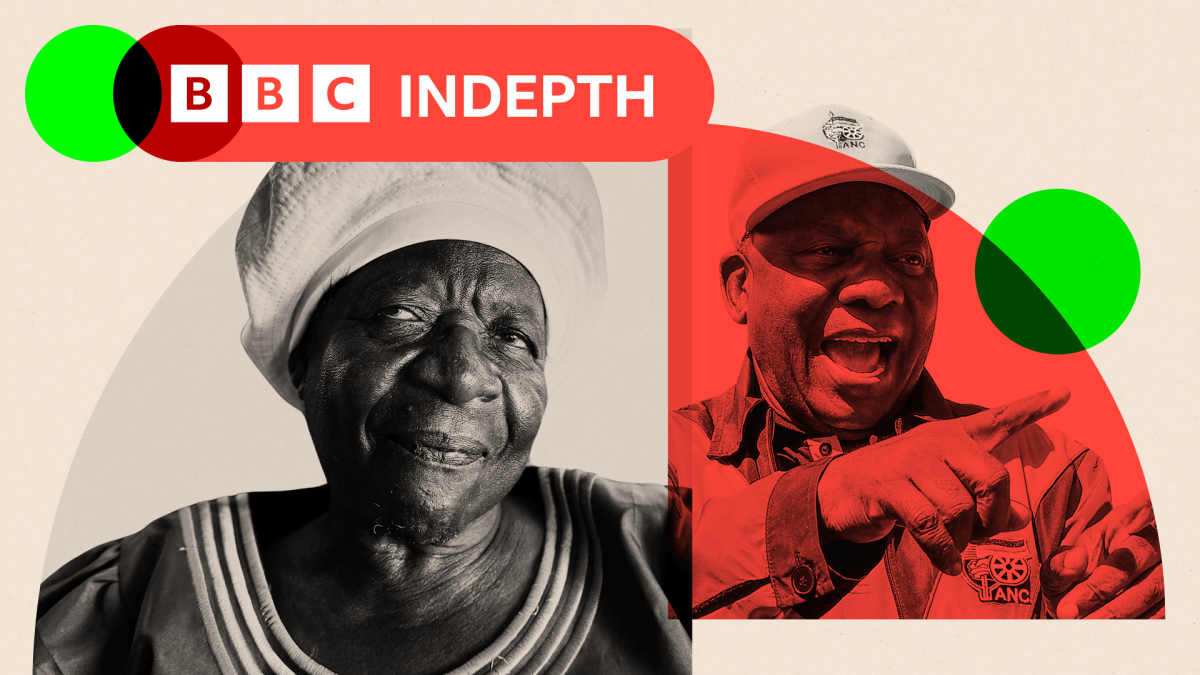They were shadow individuals, moving beyond the light of little fires on a winter season dawn. There was no tip then that I will come across among the most remarkable sights of my time in South Africa.
In this part of the nation, winter season is a cold, dry season that burns the veld brown. The ground is hard like flint and when the wind blows throughout the plains, dust covers the squatters and all that they bring.
I might hear digging, and coming closer I saw a female hacking at the earth. Neighboring other males and ladies were doing the exact same thing. They had old garden tools, machetes, pieces of stone, anything to make holes into which they put pieces of plastic, tin and wood.
I asked the lady what she was doing. “We are concealing our shacks,” she informed me.
This was a squatter camp outside Johannesburg in 1994 as South Africa prepared to enact its very first non-racial elections.
To see that vote in a country brutalised by apartheid was to witness an amazing minute in the story of humankind. The very first citizens – primarily the senior – who silently cast their tallies pressed history inexorably forward.
Thirty years later on South Africa is an extremely various nation. Democracy has actually withstood. The worry and racist cruelty of the past is gone. However there is prevalent disillusionment with the judgment African National Congress (ANC) in power because Nelson Mandela ended up being the nation’s very first black president.
At That Time, the lady concealing her shack informed me that her name was Cynthia Mthebe. Her story has actually stuck with me for over thirty years.
As the sun increased, the squatter camp slowly disappeared under the earth. One hour previously, there had actually been a neighborhood of a number of lots shacks and lightweight camping tents. Now there were just individuals, covered in blankets, relaxing fires.
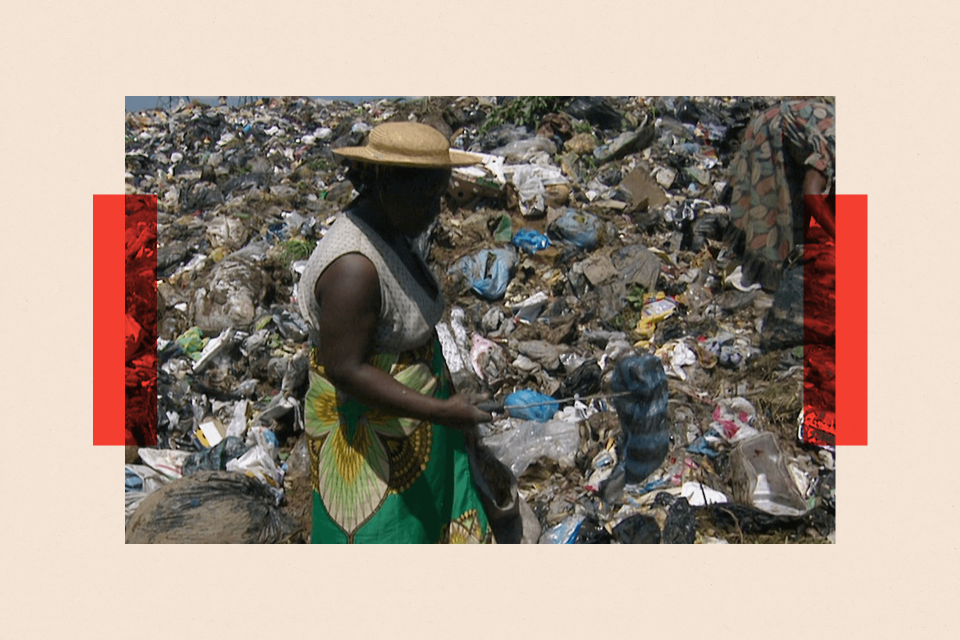
Kid worn their school uniforms were avoiding in the instructions of the primary roadway, about a mile away beyond the fields. No matter what destruction they suffered here, moms and dads combated to offer their young an education.
Cynthia had 7 kids then, and looked after them on her own. Her other half abandoned the household a number of years before and had actually not been spoken with because.
Every day she, and the other squatters, buried their homes so that they would not be bulldozed by the federal government. And every night Cynthia returned, collected her home and slept there with the kids. They had actually been teargassed, contended with rubber bullets, however still they returned. There was no place else to go.
“I wish to reside in a good home with my kids since I’m suffering. I wish to be the exact same like white individuals. I’m suffering since I’m black,” she stated at that time. Cynthia fed her household by dealing with a rubbish dump, gathering can which she offered in return for a pittance. Simply enough to sustain life on the margins of presence.
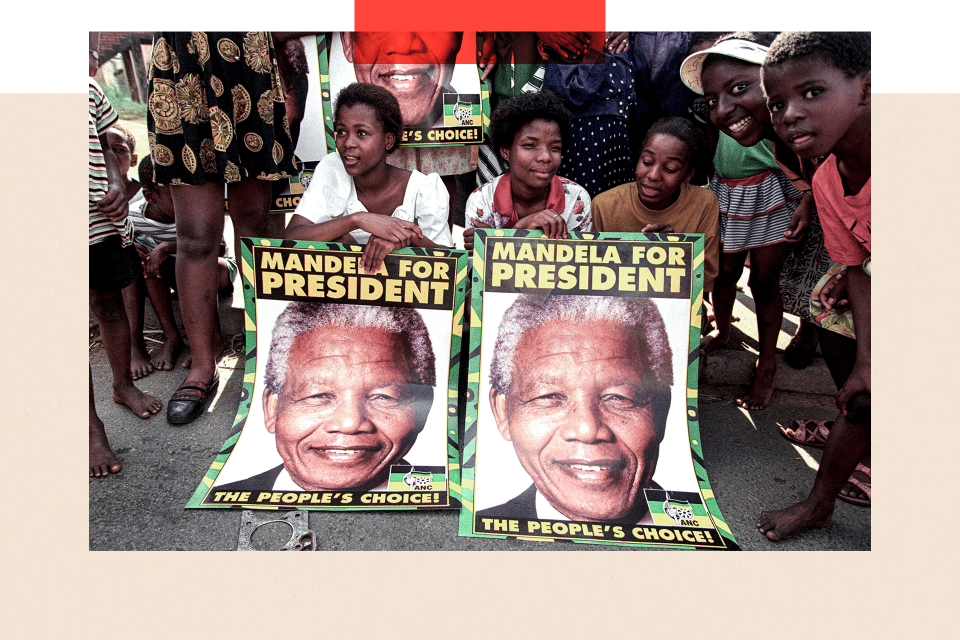

In the unfolding story of her life is the story of countless South Africa’s poorest individuals. She was born upon a white-owned farm in 1946 – 2 years before Afrikaner nationalists concerned power and started carrying out the policy of apartheid.
Racial discrimination was composed into law. Every element of the life of non-whites – from where they might live, what tasks they might do, who they might wed – was policed completely by the white federal government. Torture, disappearances, everyday embarrassment haunted black lives.
Under so-called Grand Apartheid, the state would discard countless blacks into barren tribal “homelands” where they were provided small self-reliance. In truth they were deserted to hardship under the guideline of despotic regional leaders. Then there were the laws under which individuals were racially categorized. Among the race tests included pressing a pencil through an individual’s hair. If it came through without blockage they were categorized white. If not they were cast into apartheid’s world of discrimination.
Among Cynthia’s numerous unpleasant memories of apartheid is of her time working as a house maid in a white home in Johannesburg. She was provided some remaining food and started to consume it from a plate coming from her companies. “The madam of your house informed me I need to never ever do that, to consume from the exact same plate as them. It resembled I was a pet dog,” she informed me.
Cynthia Mthebe was among the 10s of millions to whom Nelson Mandela had actually guaranteed a land of equality and justice after his release from jail in 1990. In his Nobel Reward approval speech 3 years later on the ANC leader mentioned South Africans ending up being “the kids of Paradise”.
As South Africa got in the last days of its 2024 election project, I headed into the rural heartland of the nation’s north-west to see Cynthia, far from the squatter camp of Ivory Park where we initially fulfilled.
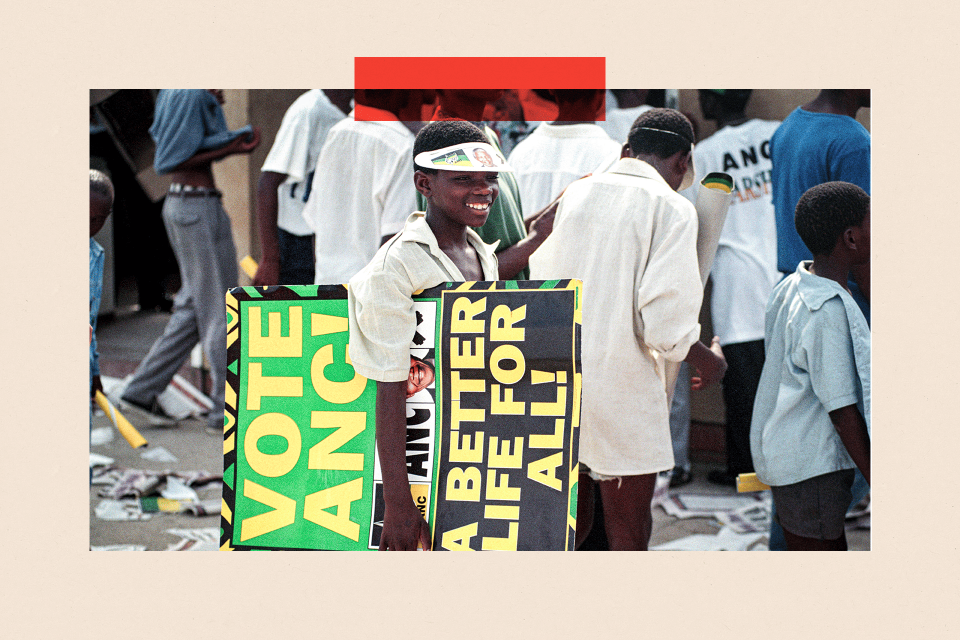

Mandela has actually been dead for more than a years and his celebration, Africa’s earliest freedom motion, is moving in appeal. There is prevalent disillusionment over main corruption – approximated to have actually cost billions of pounds – and bad governance. South Africa stays the most unequal society in the world with the typical white household most likely to be 20 times wealthier than their black equivalents according to one research study. Succeeding surveys have actually revealed the ANC remains in threat of losing the total bulk it has actually held because the very first democratic elections in 1994.
The last stretch of the journey to Cynthia takes me along a dirt track, previous winding livestock, a male hoeing his veggie spot, and groups of ladies and kids returning from church. There are the noises of cowbells tinkling, and kwaito (a distinctly South African take on Home music) flourishing from a radio in among the little brick cabins that dot the landscape in Klipgat, the settlement where Cynthia moved 7 years back.
I identify the blue home with the lemon tree in the garden. I have actually been here before. In thirty years I never ever lost contact with Cynthia and her household. I see the senior lady technique throughout the lawn. She leans on the arm of her granddaughter Thandi, among Cynthia’s household of 9 kids, 13 grandchildren, and 7 great-grandchildren.
Cynthia puts her give out to grip mine and after that enfolds me in her arms. “Fergal it is you,” she states. Cynthia is now blind. The lady whose eager eyes when monitored her household in the squalor of the squatter camps now resides in a world of darkness and sounds.
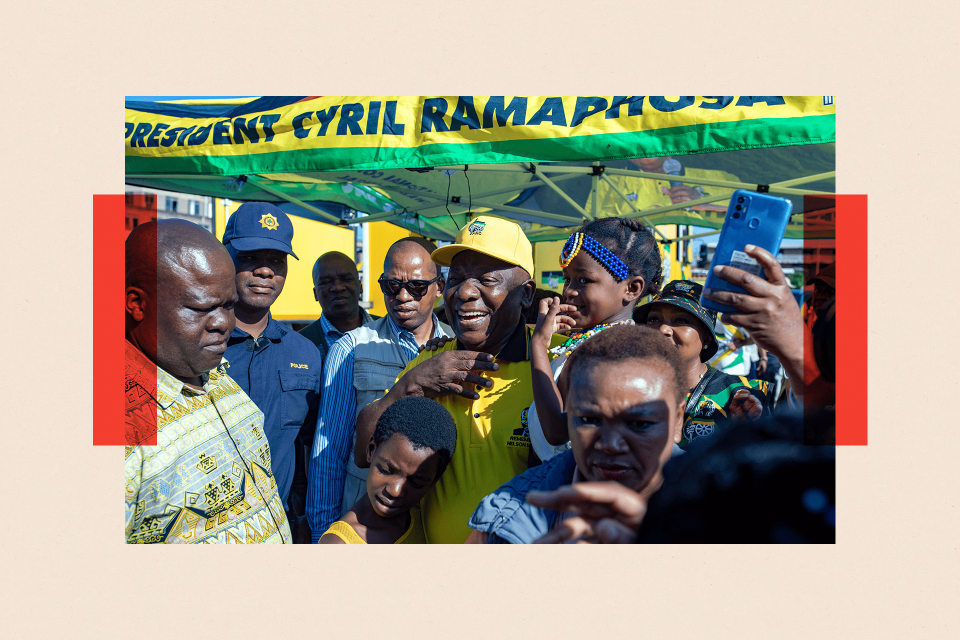

She is likewise diabetic. The years of working the rubbish dumps and residing in shacks have actually exacted a heavy toll. Yet her home is a location of security and peace. The centers at the regional center are much better than those offered in the city. Cynthia likewise gets a month-to-month well-being grant of 2,000 rands (about $108; £85).
However your house was constructed by her kids, from cash they patiently conserved doing whatever work they might discover. Her oldest child Doris discovered a task in a white-owned store. Eldest child Phillip operates in the marketplaces in Pretoria, about an hour away. Grandchildren likewise assist. When I initially shot with Cynthia back in the 1990s there was a profusion of assistance from BBC audiences who sent out cash to assist the household.
The Mthebes have actually held together as a household through their own efforts, not since of what was provided to them by the state or anybody else. “Even now things are not much better,” states Cynthia. “I’m attempting… (to endure) by all methods.
“However I do not have power since we have not got food if I have not got cash, since the grant is too little.” Nowadays it is Doris who offers much of what her mom requires to reside on, while likewise assisting her own child and child.
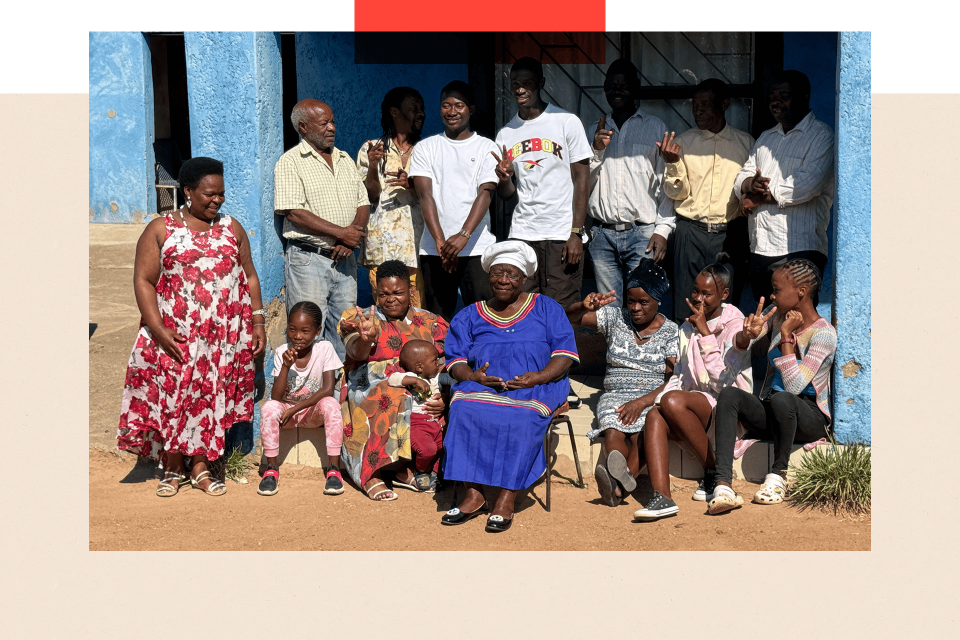

Cynthia is mad with the federal government. “There are no tasks… individuals are suffering. However they [the ANC] state choose me, choose me constantly. I’m not heading out to vote. For what? Due to the fact that it does not matter. The federal government does not not do anything for us.”
She indicates the lack of running water in her home, the regular power cuts in the location due to the diminishing of the country’s energy grid, much of that triggered by corruption and a failure to invest.
The ANC confesses has actually made severe errors however indicate the tradition of inequality from more than 3 centuries of white guideline, something that might not be gotten rid of in thirty years. The celebration states it has actually constructed countless homes, provided necessary services to the bad, and more centers and medical facilities. The main quote is that 1.4 million are still waiting on homes – numerous think that number is a significant underestimate. The reality is that a lot more might have been done had not a lot cash and energy been lost by corruption and factional battles inside the ruling celebration.
Cynthia’s view of South Africa and the ANC – she was a happy fan of Mandela in 1994 – is greatly affected by her household’s experience. Her middle child, Amos, was shot by bad guys and is now lame, having a hard time to discover any operate in a nation with a joblessness rate of more than 30%. Criminal Offense in South Africa harms black South Africans most.
Around 25,000 individuals were killed in 2015, among the greatest murder rates on the planet. Cynthia’s 2nd child Joyce was deserted by her other half and is likewise out of work. Another child, Jimmy, passed away from alcoholic abuse in a town near Johannesburg.
More from InDepth
The household asked me to reveal them the initial movies I had actually made back in the 1990s. We beinged in the heat of the tin-roofed sitting space as the previous unrolled on my laptop computer screen. Cynthia in the camping tent during the night. Cynthia dealing with the rubbish dump. The smaller sized kids assisting her. Jimmy, currently lost to alcohol, gazing into the range.
Seeing their own history, tears streamed down the faces of Doris and Amos and Thandi. A great-granddaughter gripped her hand to her mouth in shock at the sight of Cynthia digging through the dump.
Then Doris spoke. “I wish to thank you Mum. I am who I am since of you. I like you.” Amos cleaned his eyes and, having a hard time to speak, stated: “What can I state about a mom like that. I am so happy with her.”
Cynthia had actually just had the ability to hear the noises of that previous world from the computer system, and now listened to the words of her kids. She was smiling. An old, blind lady surrounded by love. A brave survivor of her country’s battles.
BBC InDepth is the brand-new home on the site and app for the very best analysis and knowledge from our leading reporters. Under a distinct brand-new brand name, we’ll bring you fresh viewpoints that challenge presumptions, and deep reporting on the most significant problems to assist you understand a complicated world. And we’ll be showcasing thought-provoking material from throughout BBC Sounds and iPlayer too. We’re beginning little however believing huge, and we need to know what you believe – you can send us your feedback by clicking the button listed below.
